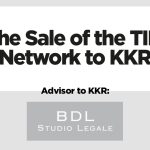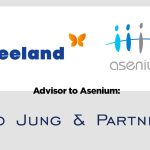An initial public offering of a 30% equity stake in Athens International Airport S.A. (AIA) was launched by the Hellenic Republic Asset Development Fund (HRADF), the state agency assigned with the implementation of the privatisation programme of Greece.
The IPO included a public offering to retail and institutional investors in Greece and an offering to international institutional investors outside of Greece pursuant to a private placement and the listing of all AIA’s shares for trading on the Regulated Securities Market of the Athens Exchange (ATHEX). The proceeds from this listing came to EUR 784.7 million.
This IPO is expected to create beneficial revenue for the country, as this is the biggest initial public offering in Greece in over 18 years and AIA is the operator of the largest airport in Greece.
Q&A with Yiannis Palassakis, co-managing partner of Dracopoulos & Vassalakis LP (DVLaw) that advised HRADF in selling its 30% stake in AIA.
Yiannis, could you tell us more about this project, what specific roles did you and your team take on and how were these constructive for the overall aim?
To better understand the challenges that this transaction faced, we need first to get an idea of the particularities of the corporate status of AIA.
AIA is a special utility company established as a Greek société anonyme to hold a 30-year BOT concession for the new greenfield airport 30 km from central Athens (the Airport) pursuant to the Airport Development Agreement (the ADA) entered by the Hellenic Republic and private sector parties on 31 July 1995. The ADA and the articles of association of AIA were ratified by virtue of Law 2338/1995 (the Ratifying Law).
The Airport commenced its operations in 2001 and a 20-year extension of the concession period was ratified by Law 4594/2019 and became effective on 19 February 2019.
The shareholders of AIA prior to the IPO were the HRADF (with 25% of the shareholding of AIA), Greece’s sovereign wealth fund HCAP (with 30% of the shareholding of AIA), Avialliance, a wholly owned subsidiary of the Canadian pension fund PSP Investments (with just over 40% of the shareholding of AIA), and members of the Copelouzos family (with a bit less than 5% of the shareholding of AIA).
As in other similar concessions where the State remains a party in the concessionaire company, the ADA and the articles of association of AIA included detailed provisions imposing limitations to the holding and transfer of shares as well as a distinct corporate governance structure, with a view of safeguarding the State’s and the private shareholders’ interests in this investment.
It was these corporate particularities that posed certain significant challenges to the planning and execution of the IPO. In this respect, a consensus of all shareholders needed to be obtained, so as to pursue the lifting of all share transfer restrictions and proceed with the “opening” of the company to new investors. At the same time, since the corporate governance regime was in certain of its elements unique (BoD composition and election process, special quorum and majority in GSMs etc.) the shareholders needed to adapt it to the requirements of a listed company, so as to pass the scrutiny of the Hellenic Capital Markets Commission and of the Companies Registry, but at the same time balance established interests the day after. Finally, all relevant agreements and arrangements between the shareholders needed to be legally valid and sustainable both for the regulatory authorities as well as for the benefit of the prospective investors.
DVLaw acted as Greek law counsel to HRADF since its first attempt in 2019 to sell its 30% stake in AIA through a trade sale. The international tender process was postponed at the beginning of the binding offer phase in mid-2020 due to the COVID 19 pandemic and was finally abandoned following HRADF’s strategic decision to pursue an IPO. We have advised HRADF throughout the whole preparatory IPO phase with the negotiation and finalisation of a multi-layer and interconnected set of arrangements between the shareholders, the company, and the competent authorities. This included, inter alia, a comprehensive memorandum of understanding that put in place the road map until the IPO and the listing of AIA’s shares on ATHEX, the enactment of a set of special legislative initiatives allowing for the adaptation of the corporate governance structure of AIA with that of a listed company, which were designed to take effect upon the successful listing of AIA’s shares on ATHEX, a shareholders’ agreement that regulated important aspects of the company’s governance in conformity with the law and two cornerstone agreements with the existing private shareholders of the company. Furthermore, during the actual IPO process all the above arrangements were properly disclosed in the Prospectus and HRADF, as selling shareholder, abided to its regulatory obligations pursuant to the Prospectus Regulation and other pertinent legislation.
Due to the size and importance of this project there were various law firms involved, when working with other law firms and teams what is the key to ensuring a smooth working environment and how does working with various law firms strengthen the team, building a strong line-up of lawyers for the client?
We were really fortunate to work with a dream team of legal advisors. White & Case and Your Legal Partners also acted as advisors to HRADF. Latham & Watkins and PotamitisVekris were the legal advisors of AIA, Milbank and Zepos & Yannopoulos acted as legal advisors to the Managers and the Underwriters, Linklaters and Koutalidis acted as legal advisors to Avialliance.
Working with leading practitioners from top-tier Greek and international law firms around the clock for many months was an unprecedented experience for our team and a valuable lesson on coordination and collaboration in tackling complex legal issues posed by the unique status of AIA.
The whole process required us to follow a strict timeline with many actions on the critical path. Under the inspired guidance of the project managers of HRADF, the involvement of these professionals ensured the smooth and seamless completion of the individual milestones to the benefit of all parties involved.
Above all, however, this IPO reaffirmed that there are some key principles that must be followed and applied in this type of multi-person transaction. These are the commitment to the client’s needs, the willingness to be agile and accept legal improvisation when approaching complex or unprecedented issues (such as the conditionality of the special corporate governance legislative provisions on the successful outcome of the IPO and the listing) and the need to always look for a balanced approach and to prefer consensual solutions rather than coercive actions.
This is the biggest initial public offering in Greece for over 18 years, how is this set to benefit Greece as well as Athens International Airport, what are the long-term results which came from this project for the client?
Indeed, AIA’s IPO was the first significant IPO in Europe for 2024 and the biggest IPO in Greece in almost two decades. The proceeds amounted to approximately €785mn, implying a market capitalisation at listing of €2.46bn. It was oversubscribed approximately 12 times with strong demand exceeding €8bn from local and international investors and with over 20,000 individual applications received for the Greek public offering leg of the combined offering.
This extremely successful IPO marks a historic moment in Greece’s economic trajectory, as it reflects the growing investor confidence in the Greek economy.
It also reinforces the strong momentum for the Greek capital markets and the Athens Exchange, contributing 2.5 billion euros to the market’s capitalization. For AIA, the diversification of the investor base will unlock long-term value for the enterprise and should be considered as a strong “vote of trust” to the company and its development plans. As for HRADF, the IPO is the latest of a series of very successful transactions that showcases the unwavering dedication and professionalism of the fund and its management team in implementing the privatisation programme of Greece.
Finally, can you tell us of any upcoming news or exciting projects for DVLaw, what can we expect to see?
DVLaw is a well-established law firm focusing on core areas of commercial activity, including banking and finance, NPLs markets, capital markets, corporate and M&A, privatisations and tax. As regards its privatisation practice in particular, DVLaw has an established relationship with HRADF since it has been involved in some of its landmark transactions, such as the €1.23 billion takeover of 14 Greek regional airports by Fraport Greece, the privatisation of the Marina of Alimos and the privatisation of the Greek regional port of Igoumenitsa through the sale of HRADF’s 67% shareholding in the Igoumenitsa port operating company to a consortium led by Grimaldi group. Our expertise has been recognised also by Greece’s national growthfund HCAP, which is the sole shareholder of HRADF. In this respect, we have been mandated to advise HCAP for the privatisation of the regional airport of Kalamata through the granting of a long-term concession, the tender process being now in its binding offer phase, and we have been selected to be part of the group of advisors that will assist HCAP in its effort to privatise the remaining 22 regional airports that are in its portfolio of assets. We hope that we will maintain and strengthen the trust our clients have in us.
https://www.linkedin.com/company/dracopoulos-vassalakis-lp/?viewAsMember=true









